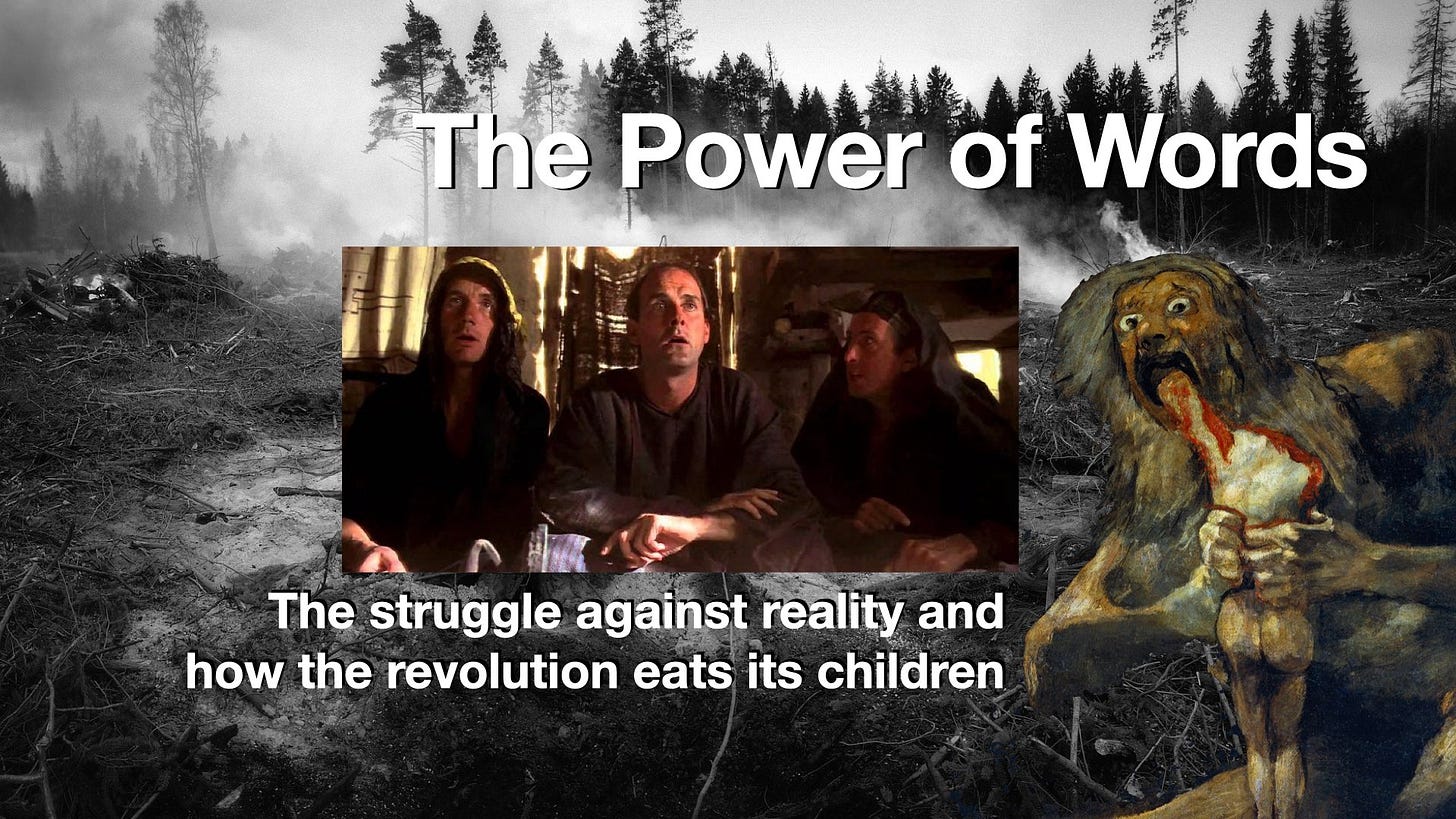The angry young men of the past become the grumpy old men of the future.
But it’s not just men. Cancel culture is an equal opportunities movement. Seven years ago, Germaine Greer was de-platformed by a university in the UK for saying that she did not think post-operative male-to-female transsexuals were "women". With the speed of news and culture change now unfolding, 2015 seems like a lifetime ago. But the warning signs were there. The revolution was just sharpening its knives and deciding which of its children to eat first.
John Cleese has found himself in a similar position. Once an angry young man, railing against the establishment and satirising men in bowler hats with silly walks, he now finds himself cast by the progressive media as the embarrassing uncle, whilst finding a home at places like Reason TV doing an interview called ‘War on Wokeism’.
As a Python, Cleese is partially responsible for Life of Brian, released in 1979. It’s hard to think of a more controversial film, guaranteed to annoy the authorities and institutions. It wasn’t an attack on Jesus, although some felt like it was. Some said they didn’t even need to watch it to know that it was blasphemous. Which is, of course, nonsense, as I explain in my book The Sacred Art of Joking (which is currently quite cheap on Amazon - and there’s an audio version read by yours truly.)
What Happened?
The world changed around Cleese and Greer. But human biology didn’t change. The words did. We need to be very careful with words, because words are powerful. They create their own reality. It is always easier to go along with those who say that a pronoun is just a pronoun, and that we should just be kind. What does ‘kind’ even mean? And what are the consequences?
Last time I wrote about how the Life of Brian contained a scene about transgenderism. Originally comic, it would now be seen as problematic. Stan, an anti-Roman revolutionary, says he wants to be called ‘Loretta’ and have babies. Reg is incredulous, pointing out Stan doesn’t have a womb. Judith tries her hardest to be accepting.
The solution? Words.
Judith tries to find a form of words that they can all live with and will make this situation go away. She says:
JUDITH: I've got an idea! Suppose you agree that he can't actually have babies, not having a womb, which is nobody's fault, not even the Romans', but that he can have the right to have babies.
In today’s climate, what Judith said is already problematic because it doesn’t go far enough. Today, Stan shouldn’t just have the right to have babies. He should have the right to be assured by everyone that he is a woman and therefore can have babies. But Reg (John Cleese) cannot, or will not, go along with this. He returns to objective biological reality:
REG: What's the point of fighting for his right to have babies when he can't have babies?!
FRANCIS: It is symbolic of our struggle against oppression!
REG: (muttering) Symbolic of his struggle against reality.
Reg can’t believe what he’s hearing, but he lets it go. He mutters some words of consolation to himself.
In 1979 this was not a controversial scene. But the scene demonstrates how words are used to protect people’s feelings, bending reality to itself, rather than to describe reality. Now we are all being strongly advised to use those words. But we need to be careful.
Careful Now
Words have power. Words are foundational to our existence. Look at the source code in the first chapter of Genesis. How does God create the world and everything in it? How does he make the sun, moon and stars? He speaks them into existence. God speaks. Reality happens.
As his image-bearers, we shouldn’t be surprised that our words have power too. The apostle James writes about the power of the tongue in his letter in the New Testament:
Look at the ships also: though they are so large and are driven by strong winds, they are guided by a very small rudder wherever the will of the pilot directs. So also the tongue is a small member, yet it boasts of great things. How great a forest is set ablaze by such a small fire! (James 3:4-5)
Ships are wrecked and forests burned down by the tongue’s use of words. Words have consequences. Once something has been said, it cannot be unsaid.
Dictionary Wars
This is why the war raging over human sexuality is a battle for the dictionary. Words bring about a reality. Insisting that a man not only has a right to have babies but can be a ‘pregnant person’ is attempting to bend reality to your will. In his epistle, James warns us of the immense damage it can do and is doing. Ships can be rebuilt. Forests grow back. But not overnight.
This is why Solzhenitsyn said ‘Live not by lies’. It’s why Jordan Peterson’s Rule Eight is ‘Tell the Truth, or at least Don’t Lie’. And one of the Ten Commandments is ‘You shall not give false testimony’. What we say really matters.
And so the revolution rages on, out of control. And those who started the fire, like Cleese and Greer, and more recently Graham Linehan, are consumed.
We discuss this on the Cooper and Cary Have Words podcast. Have listened to that episode yet?
And Faith in Kids have just produced some resources for churches on this subject that you should have a look at. Watch the trailer, at least. It’s less then two minutes. And it’s really good - and I made podcasts to go with them to listen to as a family.





